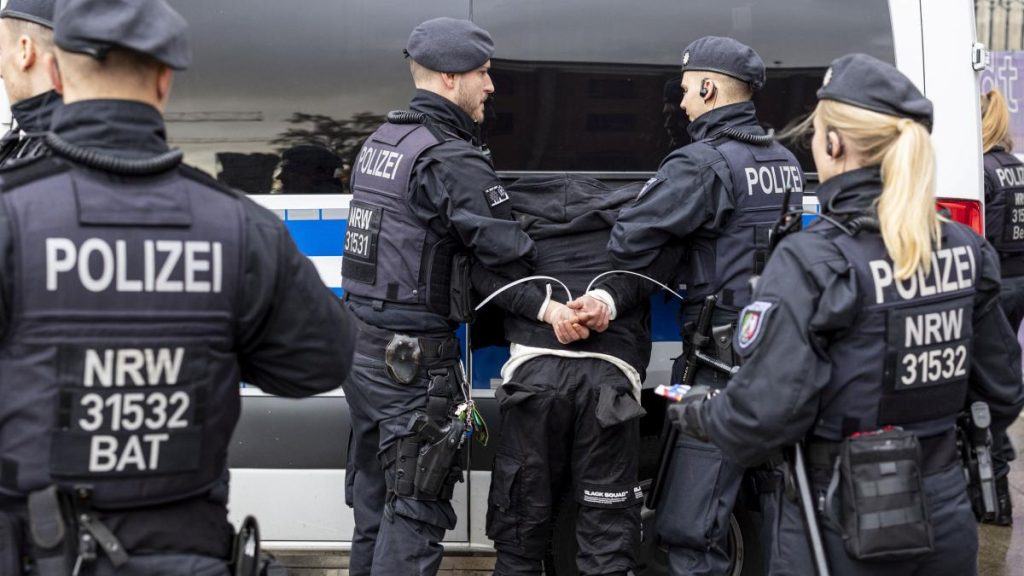Since the terror attack by Hamas on Israel on October 7, there has been a massive increase in politically motivated crimes related to the Middle East conflict in Germany. According to statistics released by the Federal Ministry of the Interior and the Federal Criminal Police Office (BKA) on Tuesday in Berlin, there were 4,369 police-recorded crimes in this context last year, more than seventy times the 61 offenses from the previous year. About 1,927 of these crimes are considered antisemitic, with the majority occurring after October 7. More than half of the nearly 4,400 crimes are attributed by police to the category of “foreign ideology,” indicating signs that a non-religious ideology originating from abroad was a significant factor in the offense. The number of politically motivated crimes reached the highest level since 2001, with a slight increase of less than 2 percent compared to the previous year, totaling 60,028 offenses, with a decrease of nearly 12 percent in violent crimes.
The statistics on politically motivated crimes are preliminary, as offenses are only recorded when reported to the police, indicating a potential underrepresentation. Propaganda offenses, damage to property, insults, and incitement to hatred were the most common types of crimes, with propaganda offenses accounting for a third of all offenses. Internet-related politically motivated crimes saw a sharp increase by 60.08 percent to 15,488, with a significant rise particularly in religious and foreign ideology categories. The majority of these crimes, however, came from the right-wing spectrum, with 7,000 offenses. Violent crimes included assaults and even attempted and completed homicides, resulting in 1,759 injuries from politically motivated violence, primarily stemming from right-wing motivations. Hate crimes also increased significantly by 47.63 percent to a total of 17,007, predominantly targeting specific groups for financial gain.
The number of politically motivated crimes decreased by almost 12 percent compared to 2022, with 1,270 offenses from the right-wing spectrum and 916 from the left. Among these, bodily harm and threats were prevalent, with 17 attempted and three completed homicides, causing harm to 1,759 individuals, a 6 percent increase from the previous year. While crimes against religious communities more than doubled to 7,029, targeting religious representatives, offenses against the state and its representatives decreased by over a quarter to 15,050. However, crimes against politically engaged individuals or public officials increased significantly by 29.12 percent, reaching 6,508 incidents, often involving insults, threats, and propaganda. The motivation behind many crimes remained unclear, falling into the category of “other,” where the police could not assign a specific ideological motive.
The enforcement of COVID-19 restrictions saw a significant decrease in politically motivated crimes, with 1,662 offenses recorded in the past year compared to 13,988 the year before. Less than half of the crimes from the previous year were resolved, with a higher resolution rate for violent offenses. The Police Union (GdP) calls for increased support for security authorities and the justice system to address the rise in politically motivated crimes. GdP Chairman Jochen Kopelke emphasized the need for disarming extremists, better police cooperation, effective prosecution of online hate speech, efficient judiciary, and increased political education to protect democracy. The Union urges the government to prioritize funding for these measures, stating that current signals are contradictory to the need for stronger democracy protection.


